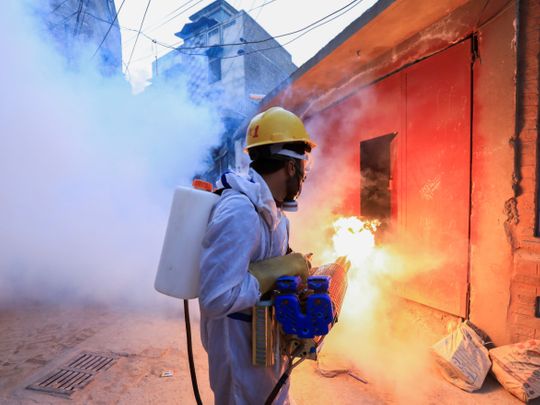
Islamabad: The city of Islamabad has recorded the highest number of dengue fever cases in the current season and at least 10 deaths.
The city reported 174 cases, which was the highest number of daily cases since October 15, according to District Health Officer (DHO) Dr Zaeem Zia. In the last 24 hours, another 118 individuals have been diagnosed with dengue fever in Islamabad. Health teams are promptly responding to both dengue and COVID-19 situations, Dr Zia said.
Islamabad has been facing a continuous rise in dengue fever cases, leading to pressure on public and private hospitals. The highest number of cases in the capital city have been reported in Tarlai followed by Koral, Alipur and Tarnol. Islamabad has so far reported 2,603 dengue cases – 1,589 in rural and 1,014 in urban areas.
The district and city health authorities are actively engaged in containing the spread by destroying the mosquito breeding sites through spray and fumigation.
Experts have stressed the need to spread awareness to control the spread of the disease. People have been encouraged to use nets, mosquito repellent and screens on windows and doors, and to wear long sleeves when outdoors to avoid mosquito bites.
Dengue is a potentially lethal disease spread by mosquito bites. Dengue viruses are spread to people through the bite of an infected mosquito. The virus is not contagious and cannot be spread directly from person to person. It typically spreads in the monsoon season as the rainfall provides breeding sites for the mosquitoes.
Pakistan has experienced several dengue outbreaks since the first outbreak in 1994. The country reported 22,938 dengue fever cases in 2017, more than 3,200 in 2018, 24,547 cases in 2019 and 3,442 cases in 2020, according to the data shared by the National Institute of Health (NIH) Islamabad.








